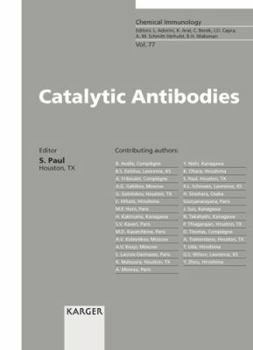Catalytic Antibodies
Catalytic antibodies have attracted attention because they can combine exquisite specificity with permanent and potent antigen inactivation. The field has enjoyed a renaissance in recent years due to the discovery of antibodies with comparatively efficient peptidase and nuclease activities. In principle, antibody catalysis could serve as a platform technology for curing hitherto intractable human diseases, a potential which is exemplified by the availability of catalysts capable of cleaving biologically important targets such as HIV coat proteins. Equally important, catalytic antibodies to physiologically important target autoantigens have been identified in disease. This volume addresses fundamental questions concerning the immunological genesis of the catalytic activity in antibodies, its relationship with classical antigen binding activity, and the biochemical mechanisms involved in catalysis. The contents reflect three main challenges in the field, i.e. to delineate the biological functions of catalytic antibodies in autoimmune disease; to isolate therapy-grade antibody catalysts with sufficient specificity and turnover to permit rapid removal of microbial and tumor antigens; and to develop immunogens that recruit immature catalyst-producing B cells into the clonal selection pathway and induce adaptive improvements of the catalytic function. Well-edited and up-to-date, this book reviews the current knowledge in the field and explores ways by which natural and engineered catalytic activities can be harnessed for medical applications. It should therefore be of special interest to immunologists, biochemists, biotechnologists, rheumatologists and pathologists.
Format:Hardcover
Language:English
ISBN:3805570996
ISBN13:9783805570992
Release Date:January 2000
Publisher:S. Karger AG (Switzerland)
Length:162 Pages
Related Subjects
Medical Medical Books Science Science & Math Science & Scientists Science & TechnologyCustomer Reviews
0 rating





